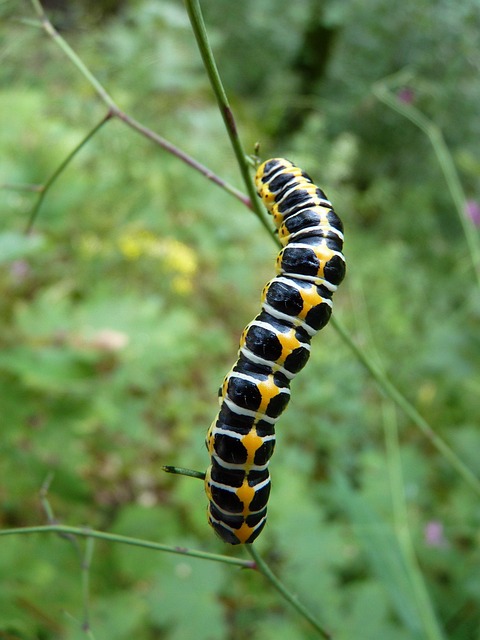Mosquitoes and ticks are common health hazards in residential areas, transmitting diseases like West Nile virus, Zika, and Lyme disease. Effective residential pest removal involves eliminating standing water, using repellents, strategic landscaping with aromatic herbs, promoting biodiversity, and seeking professional assistance when needed. These measures ensure safer outdoor activities and a more sustainable approach to managing these pests.
“Mosquitoes and ticks are more than just outdoor nuisances; they pose health risks, particularly in residential areas. Understanding these pests’ behavior is key to implementing effective control measures. This article guides you through creating defensive barriers, exploring natural repellents, and understanding professional residential pest removal services. Learn how to enjoy the outdoors safely by mastering mosquito and tick control techniques tailored for your home environment.”
Understanding Mosquitoes and Ticks: Common Types and Behavior in Residential Areas
Mosquitoes and ticks are common pests in many residential areas, posing significant health risks to humans and pets. Understanding their behavior is crucial for effective mosquito and tick control, ensuring a safe outdoor living environment. Mosquitoes, known for their buzzing sound, breed in stagnant water sources like buckets, bird baths, and clogged gutters. They are most active during dawn and dusk, seeking blood meals from hosts, including humans and animals. Several species, such as the Culex and Anopheles mosquitoes, can transmit diseases like West Nile virus, Zika, and malaria.
Ticks, on the other hand, are arachnids that attach to hosts for feeding, often found in grassy and woody areas. They do not fly but rather wait in vegetation for a suitable host to pass by. Common types include the American dog tick, brown dog tick, and deer tick, with the latter known for carrying Lyme disease. Preventative measures such as regular yard maintenance, removing standing water, and using repellents can significantly reduce mosquito and tick populations in residential areas, making outdoor spaces safer for activities like gardening, barbecuing, and playtime.
Creating a Defensive Barrier: Safe and Effective Strategies for Mosquito and Tick Control
Creating a defensive barrier is a multi-faceted approach to safe and effective mosquito and tick control for your outdoor living spaces. Start by eliminating standing water, as these habitats are breeding grounds for both pests. Regularly empty containers, bird baths, and flower pots to disrupt their life cycles. Next, invest in a quality insect repellent that contains DEET or natural alternatives like citronella and eucalyptus oil to create a protective barrier on your skin. For added protection around your home, consider installing mosquito netting over outdoor dining areas and seating.
In addition to personal precautions, implement landscaping strategies that act as natural deterrents. Planting mosquito-repelling herbs like lavender, basil, and marigolds in garden beds can help keep these pests at bay. Trimming vegetation and keeping grass mowed short creates less favorable hiding spots. Moreover, consider professional residential pest removal services for a comprehensive solution. These experts utilize advanced techniques and environmentally friendly products to control and eliminate mosquito and tick populations, ensuring a safer outdoor environment for you and your loved ones.
Natural Repellents and Alternative Solutions: Eco-Friendly Approaches to Pest Removal
Natural Repellents and Alternative Solutions offer eco-friendly approaches to mosquito and tick control, appealing to those seeking safer, more sustainable methods for residential pest removal. Planting aromatic herbs like citronella, lavender, and basil can help deter these insects naturally. These plants release chemicals that mosquitoes and ticks find unpleasant, providing a gentle, non-toxic barrier around your home and garden.
Additionally, using essential oils derived from these plants in diffusers or applicators is another effective strategy. Research shows that combinations of citronella, eucalyptus, and peppermint oils can be highly repellent. Birdhouses, bat houses, and beneficial insect habitats also play a role in maintaining a balanced ecosystem, reducing the overall pest population while promoting biodiversity in your outdoor space.
Professional Residential Pest Removal: When and How to Seek Expert Help
Many homeowners attempt to manage mosquitoes and ticks on their own, but professional residential pest removal services offer a more comprehensive and effective solution. If your outdoor living spaces have become unwelcoming due to an overwhelming presence of these pests, it’s time to consider seeking expert assistance.
Hiring qualified pest control professionals ensures access to advanced equipment, targeted treatments, and eco-friendly methods that are often not available to the average person. They can identify entry points and breeding grounds, providing long-term solutions to keep mosquitoes and ticks at bay. A professional service will also ensure the safety of your family, pets, and plants by using appropriate products and applying them correctly, minimizing potential risks associated with DIY methods.
In summary, creating a safe outdoor living space involves understanding and addressing mosquito and tick control. By combining effective strategies like barrier protection, natural repellents, and professional residential pest removal when needed, you can significantly reduce these pests’ presence. Armed with knowledge and the right tools, folks can enjoy their outdoor havens without the hassle or health risks associated with these common vectors of disease. Remember that, in today’s world, navigating these issues proactively is key to a peaceful and pest-free existence.
